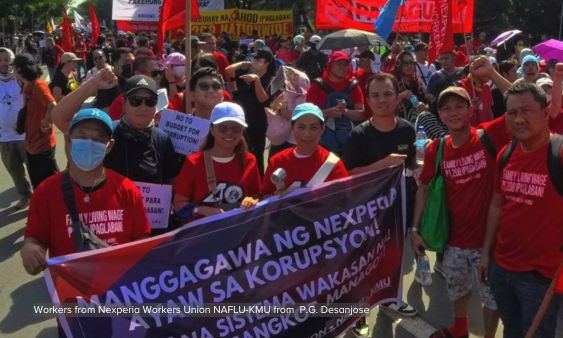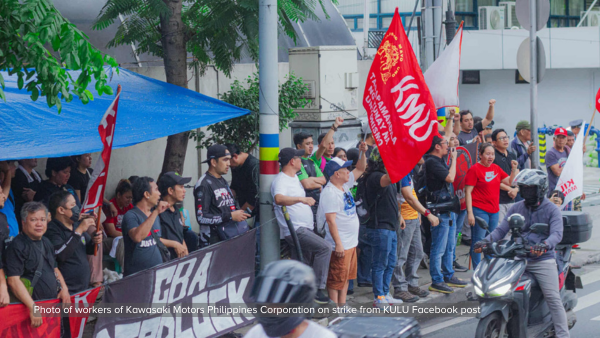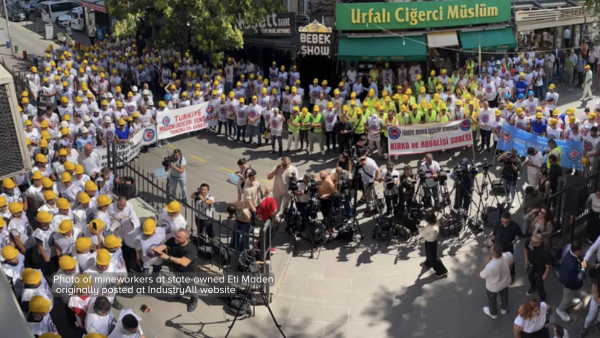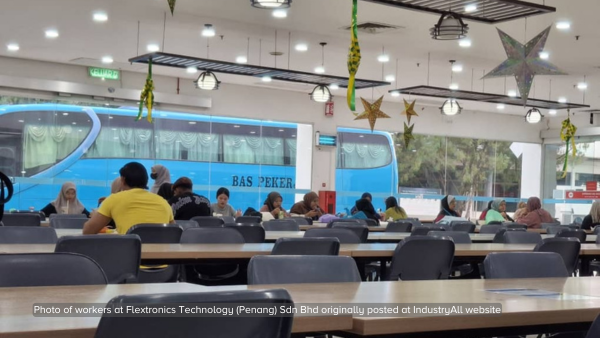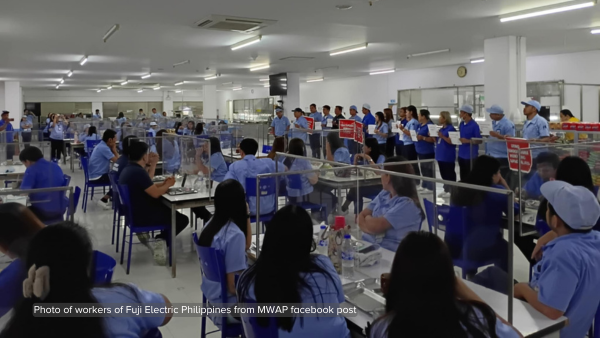Lee Jong-ran (right), labor attorney with SHARPS, helps Hwang Sang-ki (left), a SHARPS founder, put on a clean suit ahead of a rally against Samsung in 2016. Samsung listed Lee and Hwang as “persons of interest,” and put them under surveillance. SHARPS activists often don clean suits to highlight the work hazards of Samsung’s chip labs.
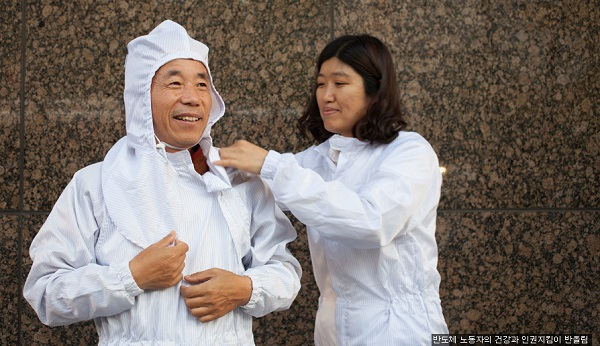 Photo: SHARPS
Photo: SHARPSThe Samsung corporate star chamber has flouted laws and placed SHARPS under watch even at a time when the advocacy group and the company began dialogue, independent daily Kyunghyang reported on April 18, citing court records.
Secretive Office
Two confidential Samsung documents surfaced during a criminal hearing on April 16 for 32 Samsung Electronics Co. Ltd directors and executives indicted for allegations of illegal union-busting, confirming long-held beliefs that Samsung had placed SHARPS under illicit surveillance.
The two records were among a trove of documents the government seized two years ago from the Future Strategy Office of the Samsung Business Group, the secretive office of 200 staff handpicked and used by the conglomerate’s founding Lee family to perpetuate its control of 63 affiliates.
Samsung’s Fears of a Union and Two Comic Books
In one document, the office made a list of juyo inmul, or “persons of interest,” including Hwang Sang-ki—a SHARPS founder and father of a publicly known victim of Samsung’s blood-disorder cluster—and Lee Jong-ran, SHARPS’s labor attorney. The document included such private information as photos of the two activists, their national ID numbers, and their descriptions as well as those of their personal friends, according to Kyunghyang which reviewed the documents.
The document was drafted in late 2012, when Samsung contacted SHARPS to start its first dialogue.
In the other, the office laid out its own analysis of A Dustless Room and The Smell of Humanity, the two graphic narratives about Samsung’s occupational disease cluster and victims. In 2012 when the books came out, even independent publications refused to run advertisements for fear of Samsung’s retaliation.
“As the cluster issue gained publicity,” Kyunghyang quoted a prosecution document as saying, “[the Future Strategy Office] watched not only employees at risk of unionization, but also SHARPS.”
No Future for Future Strategy
The Future Strategy Office was placed under public scrutiny in 2016 when a probe by the special prosecutor revealed its pivotal role in Samsung’s heir apparent Lee Jae-yong’s bribery of then-president Park Geun-hye.
In early 2017, findings of the investigations landed Lee and Park in jail. A year later, Lee was released as his sentence was waived. However, a highest court ruling is still pending for him.
In the period leading to the pair’s arrests, the government executed search warrants on the Future Strategy Office, which led the seizure of hundreds of documents proving many illegalities Samsung committed apart from the aforementioned briberies.
In September 2018, some of these records led to the indictments of Lee Sang-hoon, executive chairman of Samsung Electronics, and 31 other executives, for allegedly sabotaging a unionization effort at its network of after-sale repair services in 2013-2016. During these years, Samsung’s brutal union-bashing, coupled with harsh working conditions, left at least three workers to die in accidents or commit suicide in protest.
In February 2017, Samsung said it would dissolve the Future Strategy Office.
As of this writing, SHARPS is still discussing what legal action it should take based on the new revelations.
Read the original report here.





